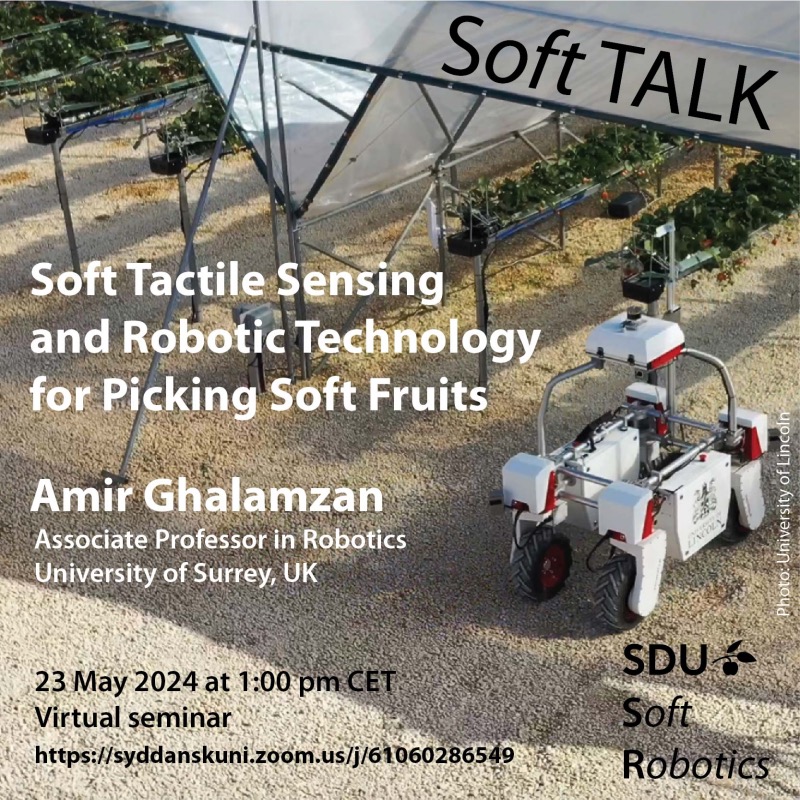On 23 May 2024 at 1:00 pm, Dr. Amir Ghalamzan, Associate Professor in Robotics at the University of Surrey, UK, will give a virtual seminar on “Soft Tactile Sensing and Robotic Technology for Picking Soft Fruits” at the University of Southern Denmark. This seminar is organized by SDU Soft Robotics and is open to the public.
Zoom: https://syddanskuni.zoom.us/j/61060286549
Abstract: The selective harvesting of soft fruits presents intricate challenges for robotics, requiring advancements in active perception, interactive sensing, and motion planning. This presentation delves into the specific hurdles faced in tactile sensing within agricultural robotics. It addresses constraints such as confined spaces, varied object shapes, cost considerations, and the necessity for softness. Recent breakthroughs in Acoustic Soft Tactile sensor technology are explored, including advancements in both 1-D and 2-D tactile sensors tailored to various robot finger shapes for object manipulation, notably strawberries. Furthermore, a novel robotic system developed for strawberry picking in agricultural fields is showcased, elucidating the complexities involved and the integration of diverse components such as computer vision, motion planning, and control.
Bio: Amir Ghalamzan is an Associate Professor at the University of Surrey, UK, specializing in the field of robotics and artificial intelligence. With extensive experience in academia and research, he has made significant contributions to various areas of robotics, including intelligent manipulation, medical robotics, and teleoperation. Amir earned his Ph.D. in Robot Learning from Demonstration at Politecnico di Milano and holds additional qualifications in Automatic Control Engineering and Mechanical Engineering from renowned institutions. He has held positions at prestigious universities such as the University of Lincoln and the University of Birmingham before joining the faculty at the University of Surrey. Throughout his career, Amir has been dedicated to addressing real-world challenges through innovative research. His work spans diverse applications, from developing autonomous robots for early breast cancer detection to creating teleoperation systems for hazardous waste management and autonomous robots for coping with challenges in modern agriculture.
